
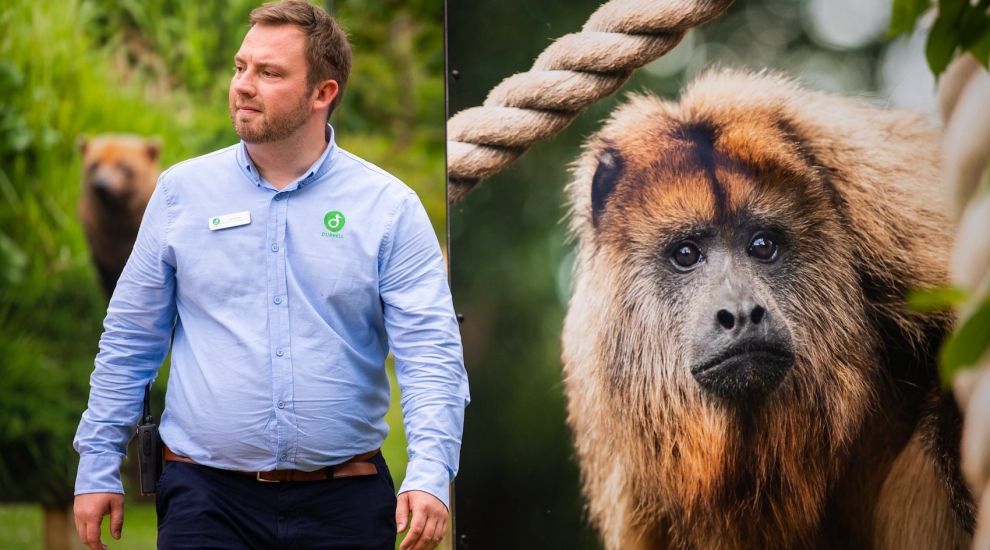

From prising open a hippo’s mouth to facilitate a dental inspection to rescuing koalas from areas of Australia ravaged by bush fires, Graeme Dick’s life has certainly been varied.
And it is this diversity which Jersey Zoo’s Director of Zoo Operations finds particularly appealing about his career, as he told Express…
There was never any doubt in Graeme's mind that his life would revolve around animals. Indeed, he was only 12 when he started volunteering at a local safari park and, as he says, "that really developed my passion for animals, wildlife and the importance of zoos and the role they play in terms of wildlife preservation and education".
From that early insight, Graeme's first plan was to become a vet, a goal which saw the Falkirk resident head firstly to "sunny Aberdeen" to study zoology and then to the University of Edinburgh to the Royal (Dick) School of Veterinary Medicine.
Having continued working at zoos and safari parks, including Longleat, during the holidays, Graeme's first full-time job was somewhere a little further afield.
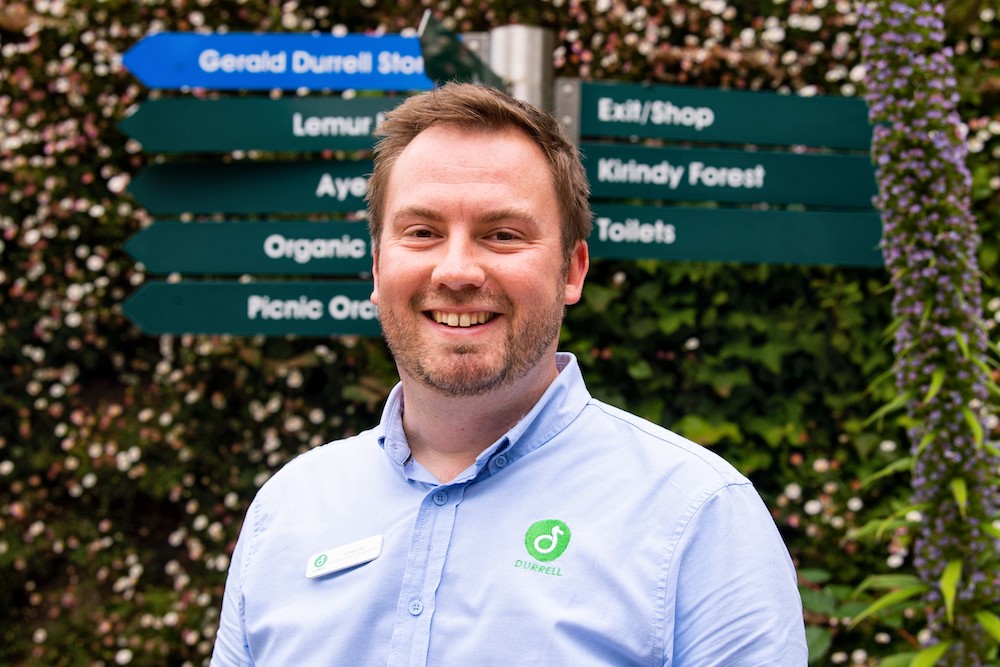
Pictured: Graeme Dick is Jersey Zoo’s Director of Zoo Operations.
"I took a job managing animal behaviour at Al Ain Zoo in Abu Dhabi," he said. "I had never been to the Middle East before but I remember the Director of the zoo flying to the UK to meet me before I accepted the job and assuring me that it was a 'good place to work'. I packed two suitcases and flew to the middle of nowhere. When I look back on it now, I'm not sure how I did it."
There was no gentle settling-in period either.
"I remember sitting in a room with all the heads of departments and they said, 'Welcome to Al Ain. We've just received a cohort of cheetah cubs, which has been illegally smuggled into the Middle East. Can you go to the veterinary centre and start looking after them?'"
It was a daunting prospect, but one which only strengthened Graeme's belief in zoology and conversation.
"The cubs were barely a week old when they came to us and while there was a big legal battle over whether they would stay with us or go back to the wild, my job was to keep them alive and get them fit and happy," he explained. In the end, some of them went to other breeding programmes while a couple remained at Al Ain.
"While it was tough at first, and shocking to see the consequences of the illegal trade of these animals, the experience guided my journey in conservation. It also highlighted key questions around what happens with smuggled animals. What is the next step? What happens to these animals once they've been rescued?"
Following his stint in the Middle East, Graeme returned to more familiar ground, taking up the position of Head of Animal Adventure at Longleat.
"It was a very exciting title," he laughed.
The job brought its own excitement too, introducing Graeme to the world of television, as the safari park became the set for the BBC series Animal Park, something which he said supported the educational element of zookeeping.
"As a zookeeper, you do so much more than look after the animals," he explained. "Zookeepers are also educators, tour guiders, builders and maintenance crew. Looking after animals is not just a case of cleaning, feeding and leaving. It is a case of educating people around you about the perils these species face in the wild and engaging people with nature, something which, for a lot of people, is not part of their day-to-day life."
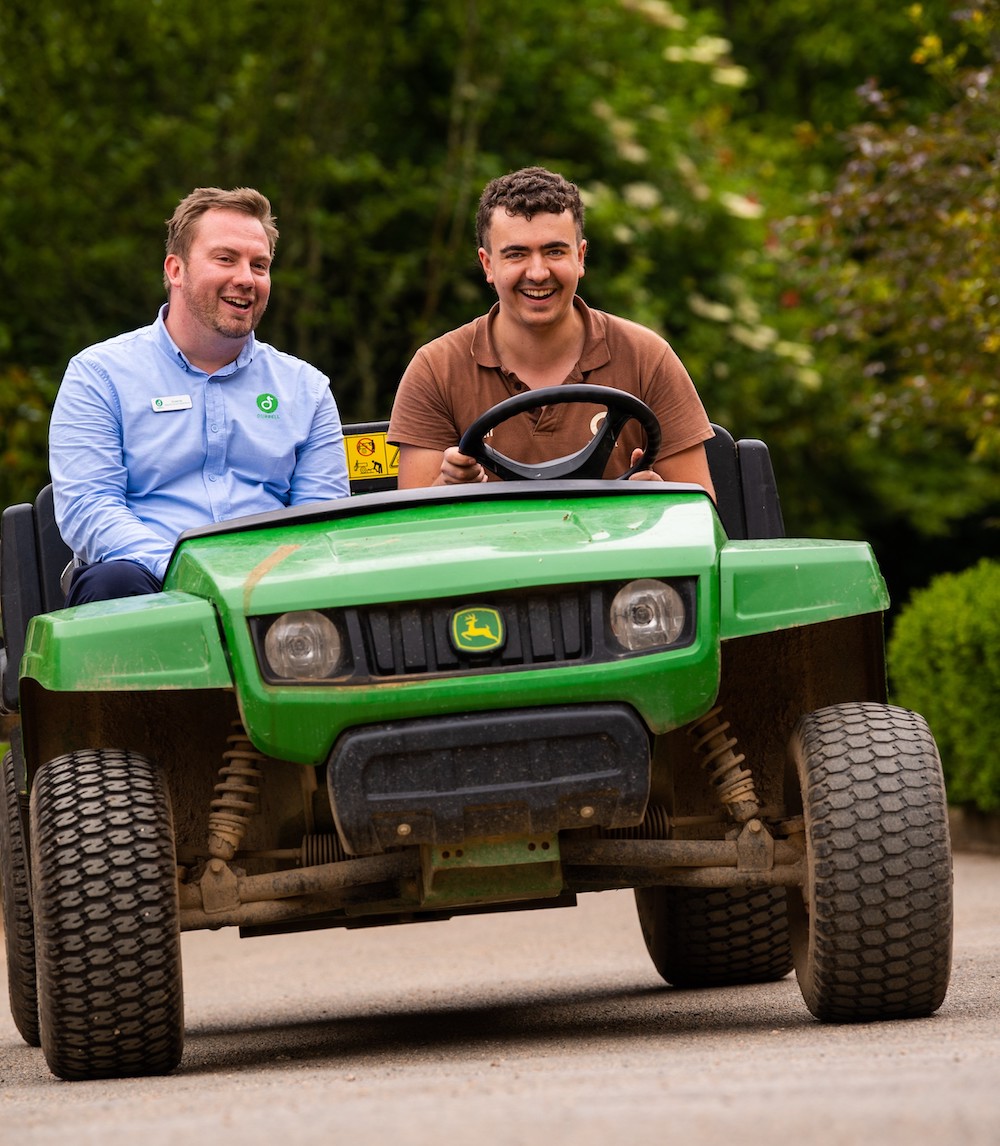
Pictured: "Zookeepers are also educators, tour guiders, builders and maintenance crew."
The way in which this education is carried out is, says Graeme, essential.
"We are getting to the point where animals are declining at a faster rate than we can do anything about," he said. "However, people are fickle. If you stand up and say that animals are declining, climate change is having an impact and so on, they switch off a few seconds into the discussion. But if you engage them, and introduce them to the animals, sharing details of their lives with them, they start to fall in love with them and, if they love something, there is a better chance that they will want to protect it."
But protecting the habitats of many endangered species is not easy, with the residents of such areas often contributing towards the problems.
"It's easy to stand here and say that we need to protect these animals but when you go to the field and meet the local communities and realise how poor many of them are, you begin to understand some of the wider issues," he reflected.
"People have the biggest influence on wildlife conservation and yet, if these communities are living in poverty, it is hardly surprising if they are cutting down trees for firewood. Therefore, to address the problem of habitat destruction, you have to get the buy-in of these communities and find an alternative source of income for these people."
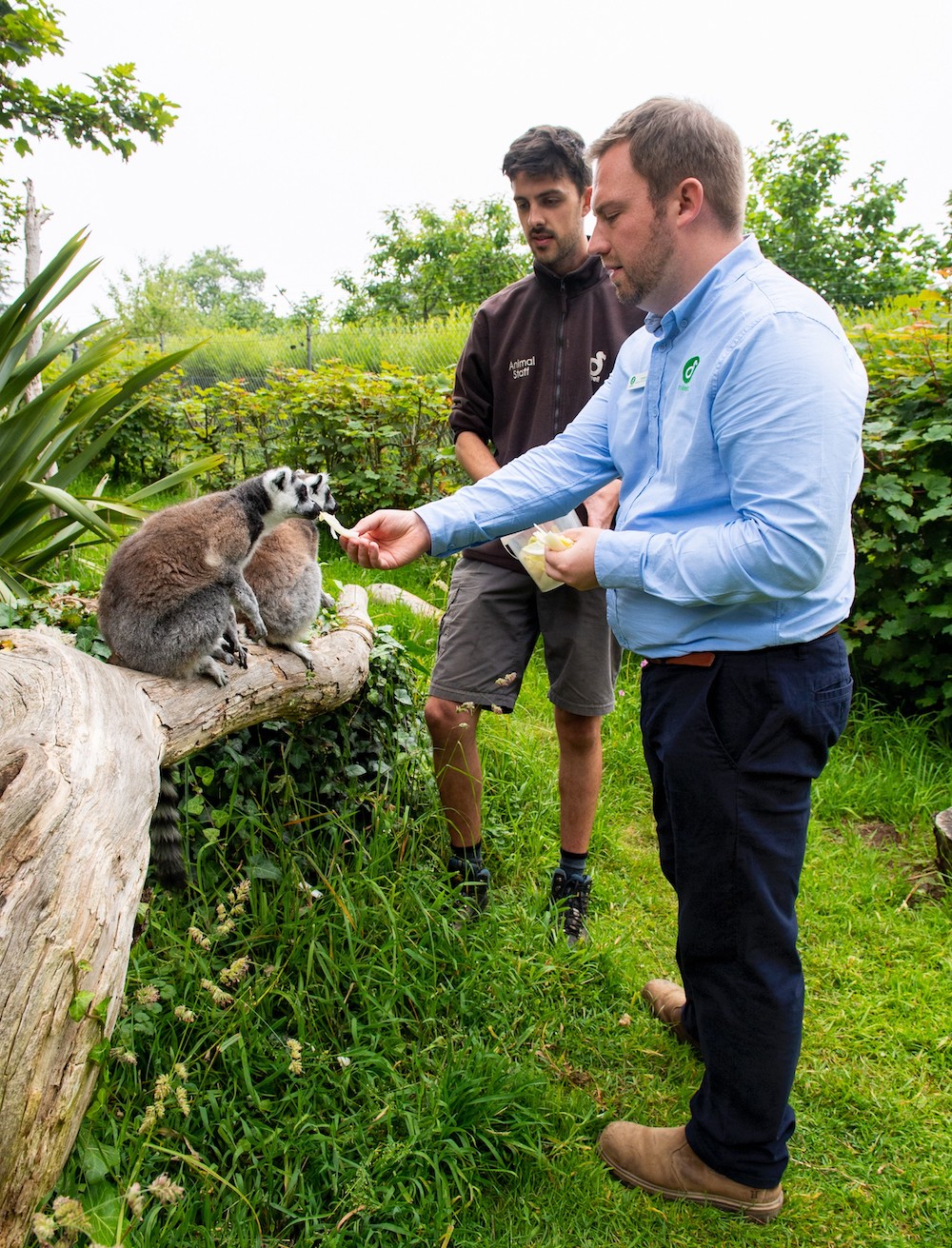
Pictured: "If you engage [people], and introduce them to the animals, sharing details of their lives with them, they start to fall in love with them..."
This holistic approach to conservation brought Graeme to Durrell in October 2021.
"Over my career, I have seen the different elements of conservation and Durrell really encompasses that," he said. "There is a strong focus on species and individual animals but there is also an understanding of rural communities and the role they play in protecting the environment."
Once again, this comes back to the key element of education and engagement and underlines the global nature of the Durrell Wildife Conservation Trust, which marks its 60th anniversary this year.
"Durrell's reputation globally is enormous," said Graeme. "When I was at Al Ain Zoo, some of the keepers there were trained by Durrell and – although I didn't think then that, some 10 years later, I would be working here – that was when I first met people from Durrell's training academy and veterinary team."
And it is the training side which helped to influence Graeme's decision to relocate to Jersey.
"As well as being keen to join such a great institution, I wanted to play a part in taking this to the next generation and ensuring that not only do we remain world leaders in animal care but that the students training here leave with the best knowledge of animal care and welfare," he said.
"This role is not just about the team and the animals at Jersey Zoo. It's about the field teams and the work taking place around the world from Madagascar and India to the Caribbean and Wales. It is incredibly diverse and anything from a complicated birth to a flash food in India can have an impact on my day."
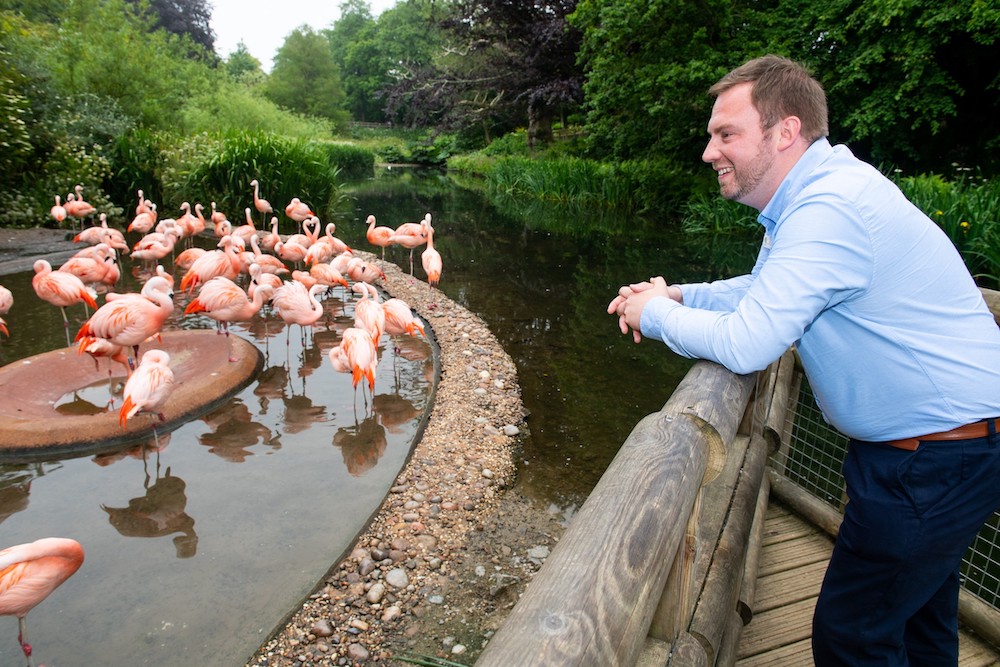
Pictured: ""Over my career, I have seen the different elements of conservation and Durrell really encompasses that."
Perhaps unsurprisingly given the island's geography, logistics infrastructure, cost of living and the global nature of the trust's work, there are often questions over the viability of keeping the Zoo in Jersey.
"We have these discussions all the time," Graeme admits. "Rising costs are making it incredibly difficult, particularly where recruitment is concerned. If I advertised an animal-keeping job in the UK, I might get 40 to 60 applicants. Here, I get three or four and that is largely because Jersey is such an expensive place to live. That cost of living is crippling the lives of young people trying to join organisations like ours.
"That means we have to pay higher salaries, but that doesn't address the lack of skills in the island. We need very specific people – from animal keepers and vets to field biologists, scientists and educators. That skill set doesn't really exist here and, without a university framework in the island, we are reliant on people from the UK, Europe or further afield."
But skills and recruitment are not the only challenge facing the organisation. Operating costs are continuing to rise and the potential loss of Royal Mail's daily flight could force the Zoo to say goodbye to certain species.
"Some of our animals feed on live insects, a supply which is wholly reliant on the mail plane," Graeme explained. "We use between 50 and 100kg of live insects every week, and we don't have the capacity to grow and rear that quantity here. Specialist feeders, such as aardvarks and geckos only eat certain live insects at a particular stage of their growth, and those insects wouldn't survive for two or three weeks in a shipping container."
Losing the mail plane could have other complications for the Zoo as well.
"If that service disappears, then other freight-handling businesses are likely to collapse, which would leave us unable to transport veterinary samples, medicines and even animals," Graeme explained. "If one of our gorillas is sick, there is only so much human medicine I can use before I need licensed veterinary medicine and I might need that medicine quickly to keep the gorilla alive. Losing the mail plane could risk animals' lives.
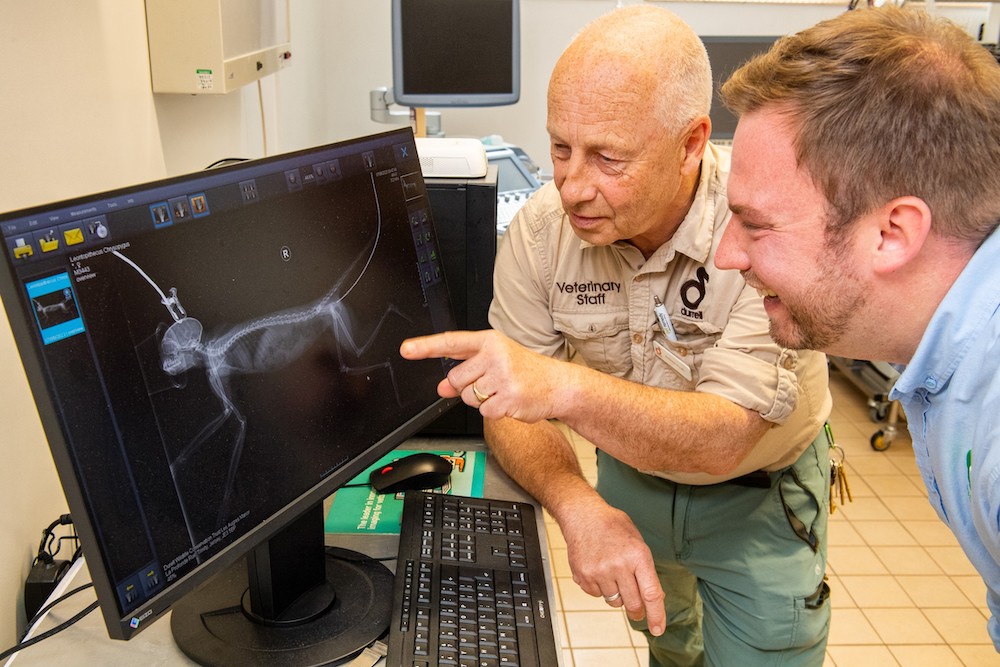
Pictured: "Losing the mail plane could risk animals' lives."
"I don't think that Royal Mail realises how critical to an island economy quick service is and I find it quite interesting that the service will continue operating to Guernsey, because of companies such as Moonpig and Funky Pigeon, but won't travel an extra 10 minutes to support an economy which is solely reliant on it not just for goods and services for people but also for animals."
Hugely concerning as the potential withdrawal of this "lifeline service" is, this is not the only challenge contributing to the question marks over Jersey Zoo's future.
"The mail plane, rising costs and Brexit all have a huge impact on our operations," Graeme added. "We also face problems with commercial flights. Every time that British Airways reduces its flight offering, we lose a plane big enough to carry animals. It is also clear to us that animals no longer have priority on flights so, once the handlers have loaded all the luggage and commercial goods onto the plane, they will see whether they have space for the animal. If not, they bump it off the flight.
"Added to these challenges, which make it less viable to be in an island like Jersey, is the lack of support that we get from the Government of Jersey. We do not receive any funding from the government and yet we are a massive beacon in the island, providing a facility which most tourists will visit and which is also available for state visits and meetings.
"We also run our education programme – which used to be funded by the government – free of charge to all local schools. When the public funding was originally withdrawn, a donor covered the cost for a few years but that funding has now dried up, so we are covering those costs as well."
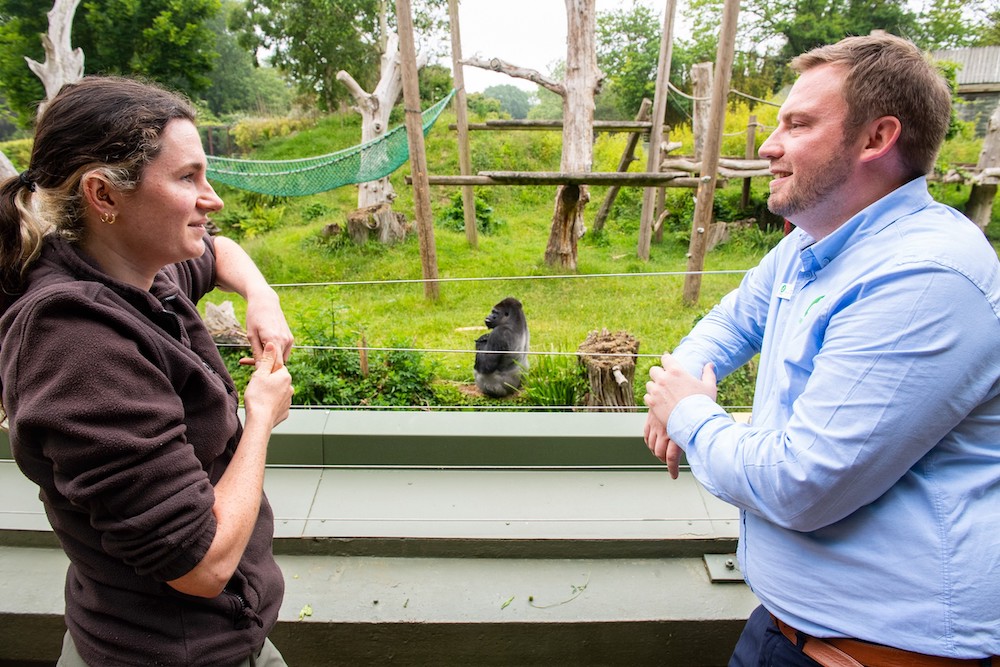
Pictured: Durrell's academy has trained more than 6,000 conservationists from about 100 countries.
While stressing that the Zoo is not "set up to demand money from people", Graeme does emphasise the organisation's global and local reach.
"We employ around 350 people, of whom around 150 are based in Jersey," he said. "Our academy has trained more than 6,000 conservationists from about 100 countries. They come here to learn about our work and then go back to their home country and share the messages and skills which they've learnt from our tiny island. If you compare us to some of those huge global institutions which hire thousands of people and have millions of pounds of investment coming in, Jersey Zoo and Durrell are hugely productive organisations."
As the headquarters of the Durrell Wildlife Conservation Trust, Jersey Zoo is the "visible part" of the charity.
"It's where we do a lot of the captive breeding, where we develop our staff and where our donors and funding bodies engage with us," said Graeme. "For some people, it's a day out, for some it's a safe space and for others it's a way of engaging with the work we do. In many ways, it is the window into the work that we do around the world and it's also a part of Gerald Durrell's legacy."
With funding and engagement critical to Durrell's global work, the team at Jersey Zoo are no strangers to embarking on high-visibility campaigns and, this week, residents may have noticed a number of tortoises appearing around the island.
"The Tortoise Trail, following in the footsteps of the hugely successful Gorilla Trail, went live on 1 July and will help to fund a new reptile and amphibian house at the Zoo," said Graeme. "This facility is in urgent need of modernisation to support not just the animals and team based here but also the field team working around the world."
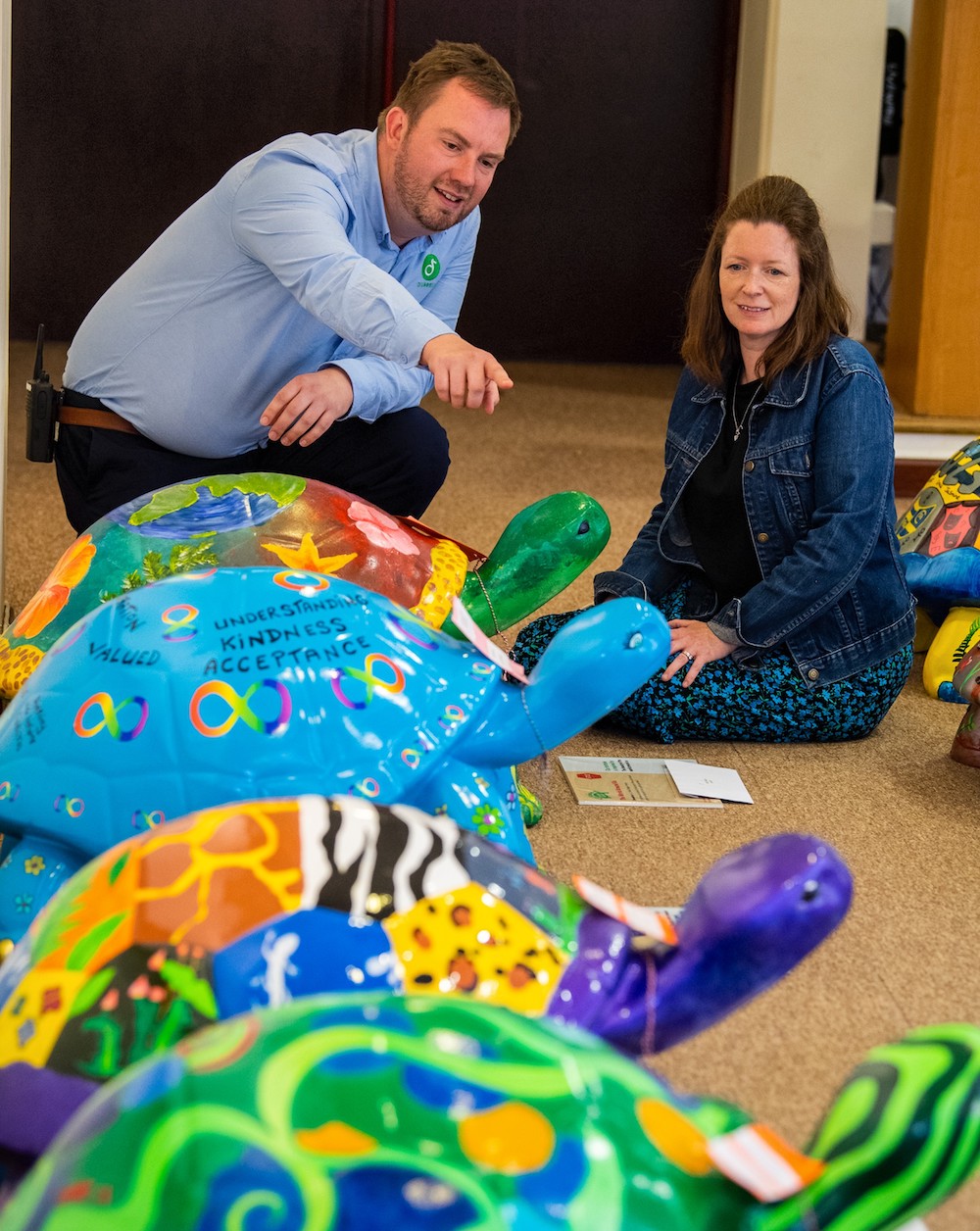
Pictured: The Tortoise Trail, following in the footsteps of the hugely successful Gorilla Trail, went live on 1 July.
It is that local but global nature of Durrell's work which, as Graeme says, drives the organisation's overall mission.
"I wake up every morning knowing that I have a goal, not just in terms of that day's job list, but in the job overall," he said. "Everything we do, whether it is upgrading an exhibit, leading a group of schoolchildren around the Zoo or travelling to the other side of the world to view a conservation project, contributes to that goal. And that mission is to bring species back from the brink of extinction and enable them to live in healthy habitats in their natural environments."
This article first appeared in the July edition of Connect Magazine – pick up a copy around the island or read the digital edition below. Inside, you'll also find a FREE official Tortoise Takeover trail guide...
Express is proud to be the media partner for this year's Tortoise Takeover. Sign up to our daily news email for all the latest updates.
Comments
Comments on this story express the views of the commentator only, not Bailiwick Publishing. We are unable to guarantee the accuracy of any of those comments.